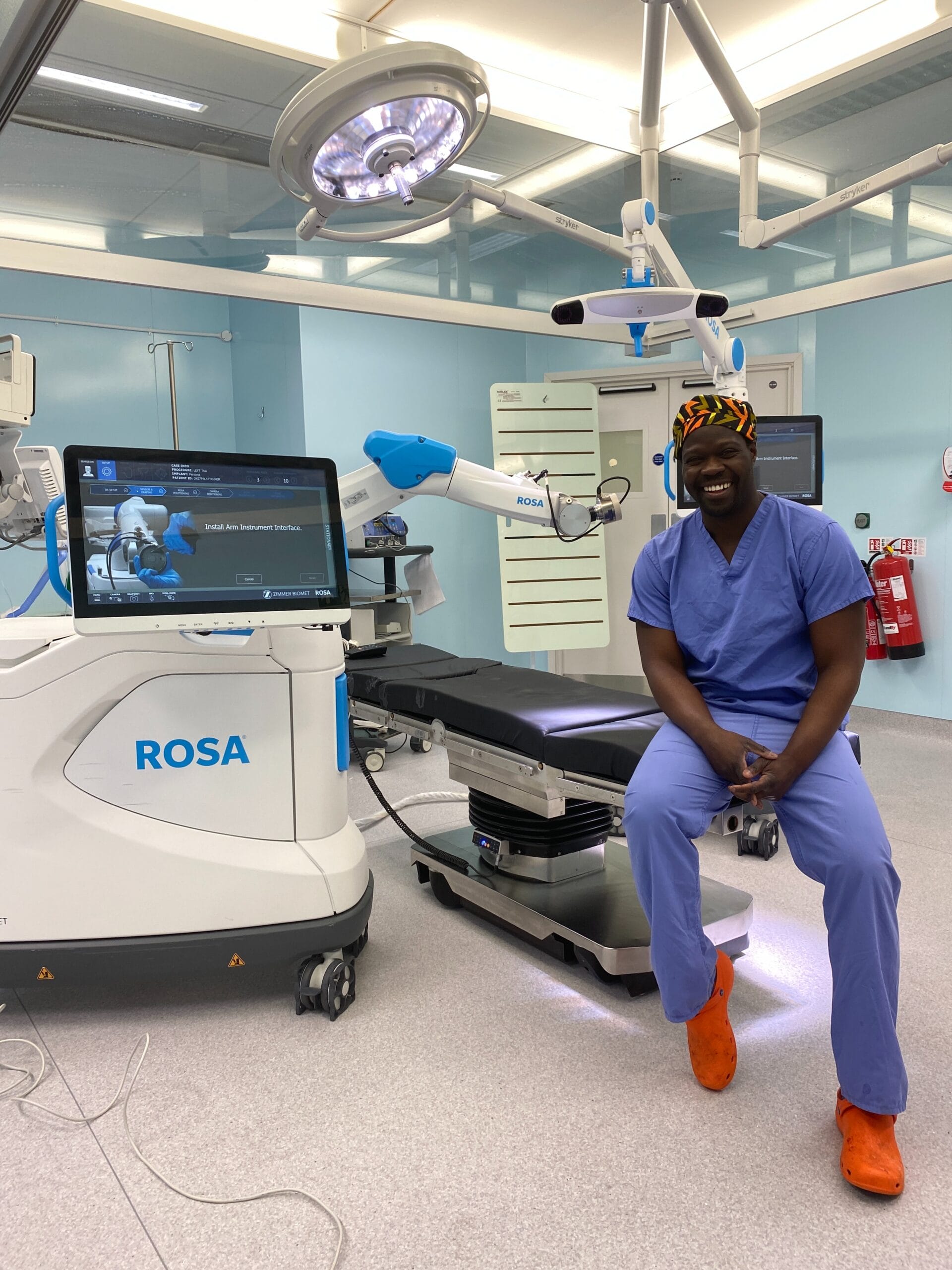Our hips are joints that can take a lot of strain over time and, as we age, through injury or arthritic conditions, the cartilage between the ball and socket can wear down and cause pain or swelling around the joint.
If you are experiencing severe pain and stiffness in your hip that has not been resolved by alternative treatments and is affecting your overall quality of life, you may be referred for a total hip replacement.
We’ve answered some of our most frequently asked questions around what you should know if you will be undergoing hip replacement surgery.
1. Why might a hip replacement be required?
The most common cause for a hip replacement stems from arthritic conditions affecting your mobility or causing deformity to the alignment of your joints. Unfortunately, these conditions usually tend to get worse with time so, if your pain and mobility has not improved through alternative treatments such as pain management, physiotherapy or steroid injection, your consultant may recommend a hip replacement procedure as the next step.
Other reasons for a hip replacement can include a hip fracture, which are mostly caused by a fall or injury but can also be a result of a long-term condition.
2. How long does a hip replacement take?
Your surgeon will make an incision on the side of your hip to remove the damaged ball and socket and insert an artificial joint made of metal, plastic, ceramic, or a combination of these materials. The implant is usually fixed onto the bone using an acrylic cement or special coatings that bond directly to the bone. The procedure usually takes 60 to 90 minutes.
3. How effective is a hip replacement?
Most patients experience a significant reduction in hip pain following a total hip replacement, allowing them to return to normal daily activities.
It is important to note that success and recovery will be different for everyone so, if you previously took part in active sports or endured heavy labour, you should follow the advice of your consultant on what level of activity you can undertake.
4. How long will a hip replacement last?
It used to be the case that a hip replacement wouldn’t be recommended for people under the age of around 60, as an artificial joint was better suited for individuals that were less active. However, modern hip replacements are generally better able to withstand strain today, thanks to advancements in technology, meaning that more younger people are successfully undergoing replacement procedures.
The longevity of your hip replacement will depend on your activity levels, overall health and lifestyle factors such as your weight, but studies show that they can last more than 20 years.
5. What are the risks and complications of hip replacement surgery?
As with any surgical procedure there can be risks when undergoing a hip replacement, including those associated with using anaesthesia, as well as some more general complications.
In general, anaesthetics are extremely safe and the risk of severe complications in a healthy person is very small, but there can be minor side effects such as sickness or confusion.
Some of the more general complications that can arise following surgery include ongoing or new types of pain, an unstable replacement joint or hip dislocation. This can happen in the first few weeks following treatment and is why extreme movement is not advised. Rare but significant complications include superficial wound or deep seated infections within the actual new hip joint and blood clots in the legs and lungs, but blood thinning tablets will be given to take for a few weeks post surgery to reduce this risk.
6. Should I do anything to prepare for surgery?
At The Horder Centre, we believe that the more you can do to prepare for your surgery, the better experience you will have following your procedure and supporting your rehabilitation.
Aside from your pre-admission appointment, where the clinical team will go through your patient questionnaire to discuss your general health and advise of any risks around the treatment, there are things you can do at home to prepare for surgery. We would actively encourage reducing or ceasing smoking or drinking in the run up to your surgery and ask that you do not drink alcohol 48 hours before you come in. We would also advise maintaining a well-balanced diet to help boost recovery, making sure to include plenty of iron to promote healing. This will include a hip class with our physiotherapy team.
7. How long does it take to recover from a hip replacement?
Recovery times vary from person to person, and your surgeon will be able to advise you on your recovery time. Following your treatment, it is important that you move around regularly to stimulate your mobility and reduce the stiffness you will be experiencing, but ensure you avoid any extreme movement, heavy lifting or twisting movements such as crossing your legs.
We can help advise you on some of the exercises that you can do at home to help improve your mobility and use of the new hip and will encourage you to adopt a positive mindset towards your recovery.
Our total hip replacement booklet will provide you with a comprehensive guide on what to expect from the procedure, how you can prepare before coming in and how to maintain a good recovery routine at home. It also outlines the risks associated with surgery and will advise you how to go about your daily activities following the treatment.
If you have any questions about our services and would like to speak to a member of our team, please do not hesitate to call us on 01892 620939 or get in touch here.
What makes Horder Healthcare unique
Horder Healthcare is committed to providing the very best quality of care for our patients and customers. We are continuously working on improving and reducing risks and this is reflected in our consistently high CQC results, patient satisfaction questionnaires and minimal levels of infection.
We are a charity
We reinvest our profit to benefit more people and help us achieve our aim of advancing health.






